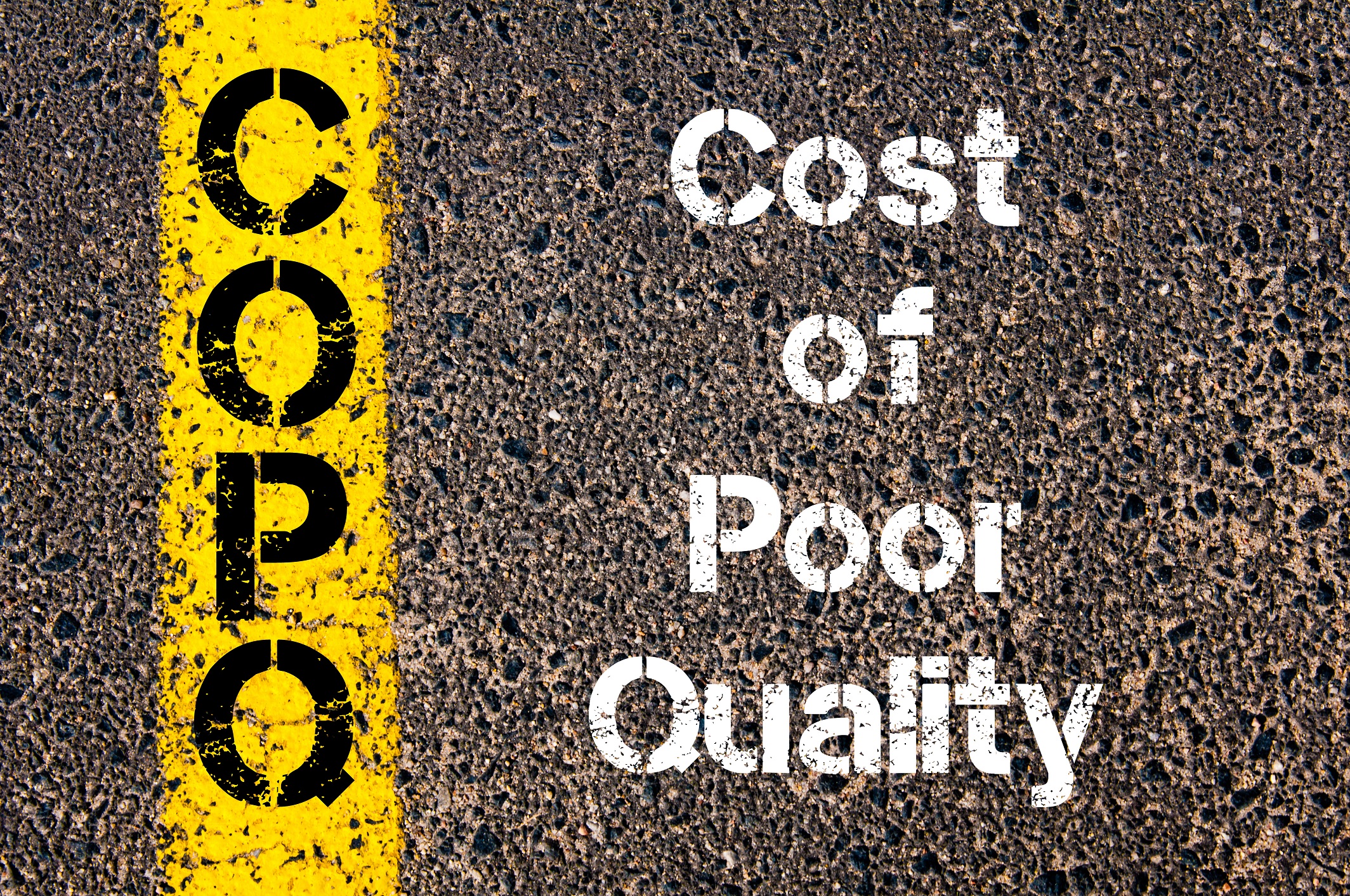Cost of quality: Why more organizations do not use it effectively

Cost of quality (COQ) is defined as a methodology that allows an organization to determine the extent to which its resources are used for activities that prevent poor quality, that appraise the quality of the organization’s products or services, and that result from internal and external failures.
Having such information allows an organization to determine the potential savings to be gained by implementing process improvements.
WHAT IS COST OF POOR QUALITY (COPQ)?
Cost of poor quality (COPQ) is defined as the costs associated with providing poor quality products or services. There are three categories:
- Appraisal costs are costs incurred to determine the degree of conformance to quality requirements.
- Internal failure costs are costs associated with defects found before the customer receives the product or service.
- External failure costs are costs associated with defects found after the customer receives the product or service.
Appraisal costs
Appraisal costs are associated with measuring and monitoring activities related to quality. These costs are associated with the suppliers’ and customers’ evaluation of purchased materials, processes, products, and services to ensure that they conform to specifications. They could include:
- Verification: Checking of incoming material, process setup, and products against agreed specifications
- Quality audits: Confirmation that the quality system is functioning correctly
- Supplier rating: Assessment and approval of suppliers of products and services
Internal failure costs
Internal failure costs are incurred to remedy defects discovered before the product or service is delivered to the customer. These costs occur when the results of work fail to reach design quality standards and are detected before they are transferred to the customer. They could include:
- Waste: Performance of unnecessary work or holding of stock as a result of errors, poor organization, or communication
- Scrap: Defective product or material that cannot be repaired, used, or sold
- Rework or rectification: Correction of defective material or errors
- Failure analysis: Activity required to establish the causes of internal product or service failure
External failure costs
External failure costs are incurred to remedy defects discovered by customers. These costs occur when products or services that fail to reach design quality standards are not detected until after transfer to the customer. They could include:
- Repairs and servicing: Of both returned products and those in the field
- Warranty claims: Failed products that are replaced or services that are re-performed under a guarantee
- Complaints: All work and costs associated with handling and servicing customers’ complaints
- Returns: Handling and investigation of rejected or recalled products, including transport costs
Process Engineering may support an organization to improve the effectiveness of quality cost by:
- Analyzing quality costs.
- Developing quality cost programs and improvement plans.
- Restructuring work and quality procedures and guidelines.
- Implementing quality auditing programs.
- Developing suppliers’ evaluation procedures.
SEARCH
Clients
find us
- 64, Apostolopoulou Str. 152 31 Halandri, Athens, Greece
- +30 210 6724258, +30 210 6724229
- Email PROCESS




